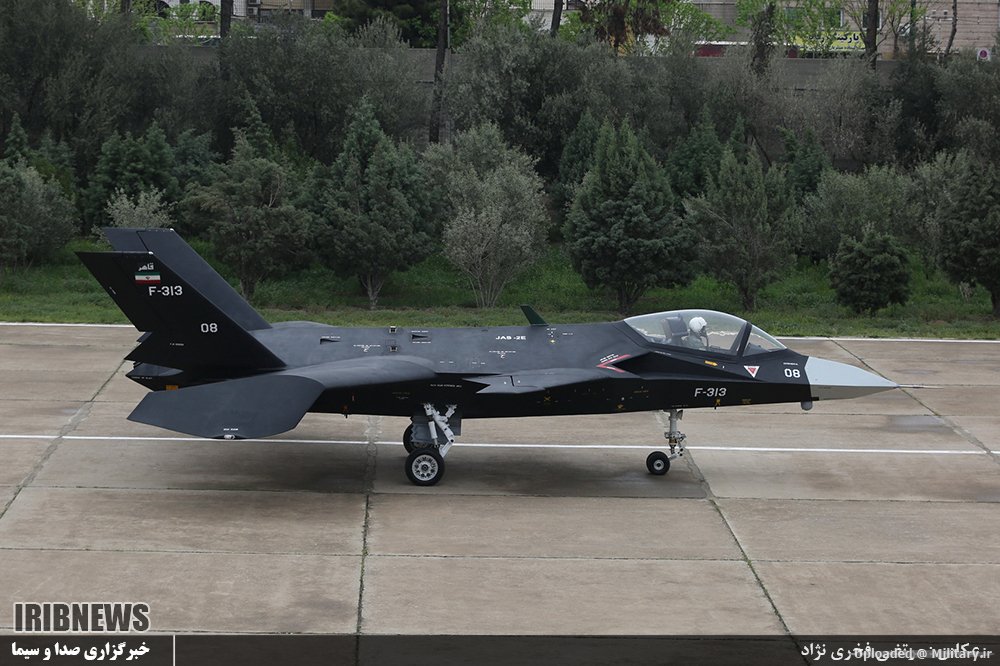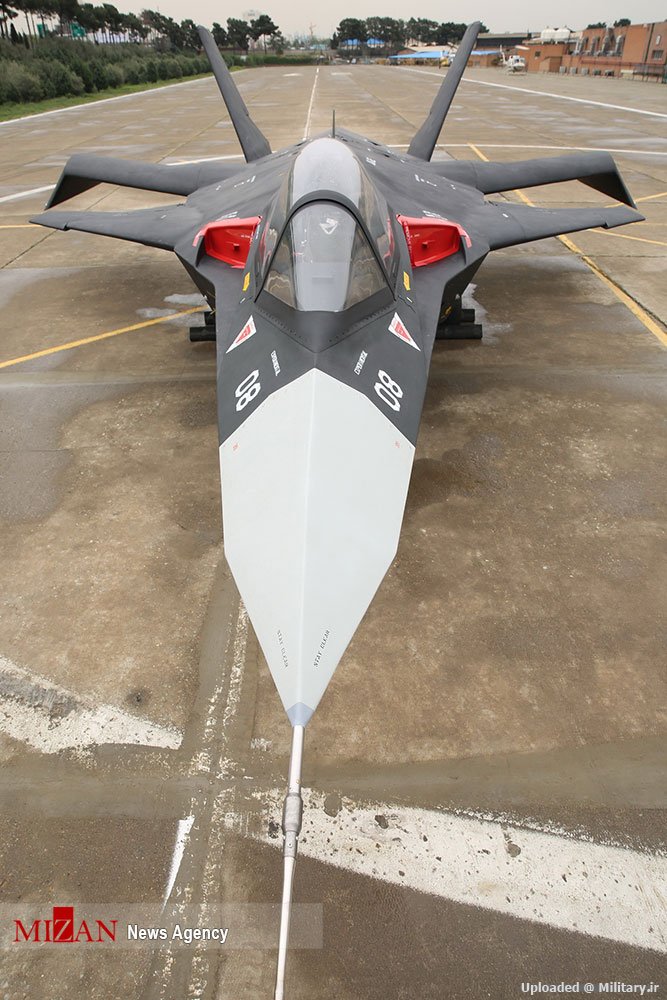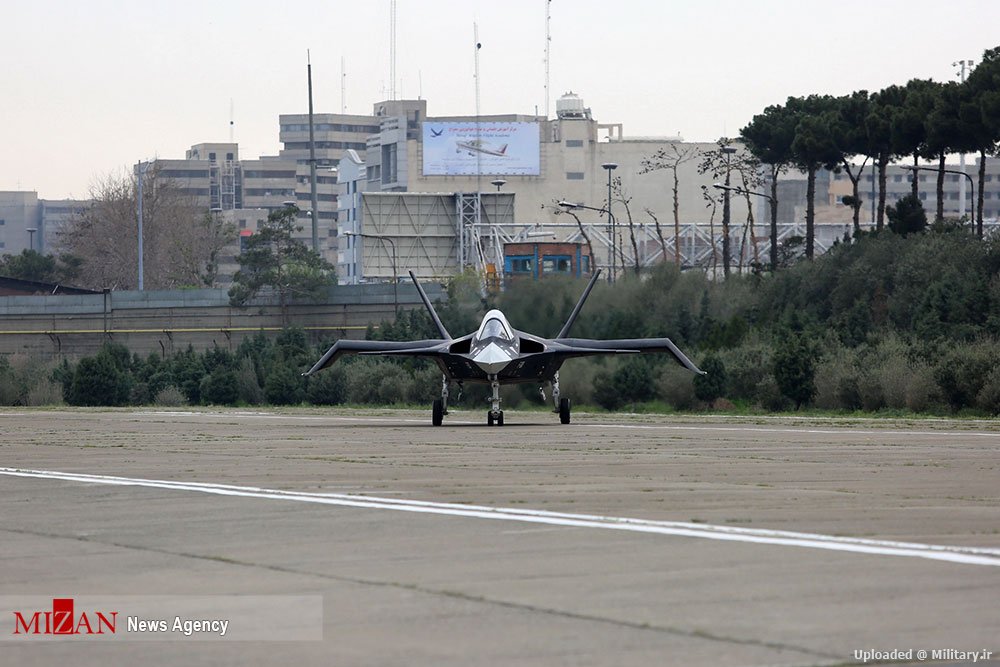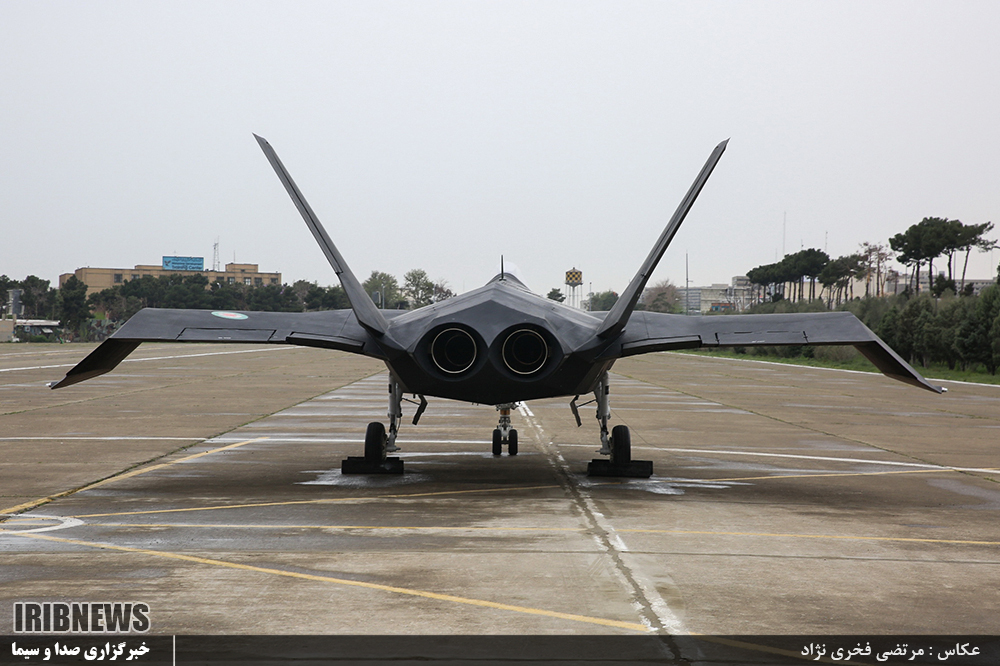LOGICAL BOSSS
BANNED

- Joined
- Jun 2, 2016
- Messages
- 521
- Reaction score
- -17
- Country
- Location
Published April 15, 2017
SOURCE: TheAviationist.com
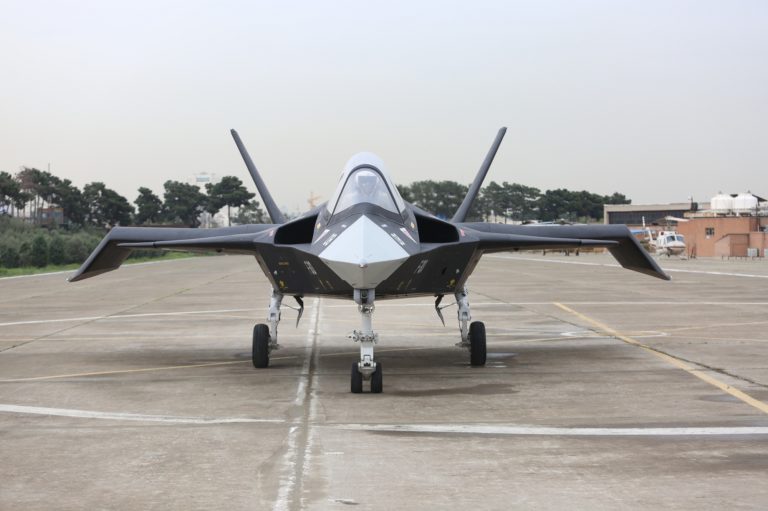
Footage and photographs showing a new prototype (marked “08”) of the famous Qaher F-313 stealth fighter jet have just emerged as Iran’s President Hassan Rouhani participated Saturday in an exhibition displaying the achievements of the Defense Ministry Brigadier General Hossein Dehqan gained during the past two years.
Indeed, an “upgraded version” of the “faux stealth fighter” can be observed performing taxi tests. The aircraft appears to be slightly different from the one unveiled on Feb. 2, 2013, that was nothing more than a poorly designed mock-up that would never fly unless it was extensively modified and heavily improved.
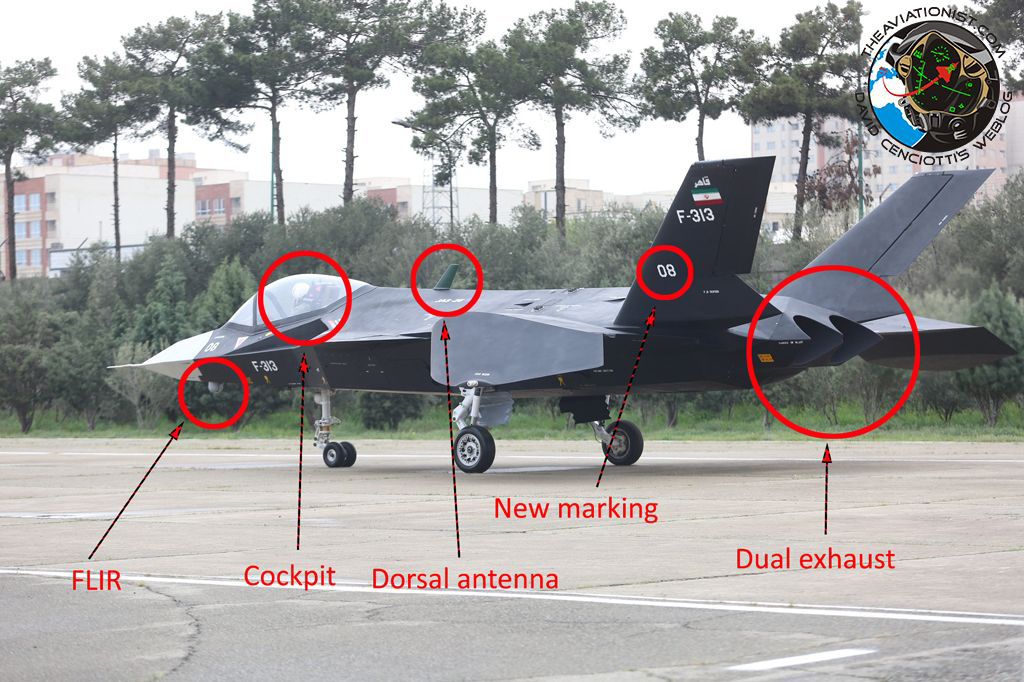
Four years ago, the cockpit was basic for any modern plane, the air intakes appeared to be too small, the engine section lacked any kind of nozzle meaning that the engine would probably melt the aircraft’s back-end. Above all, the aircraft was way too small to such its cockpit could not fit a normal-sized human being.
The new prototype retains the original weird shape but has a more realistic cockpit, large enough to accommodate an Iranian test pilot on an ejection seat, with a “normal” canopy (the previous one was clearly made of plexiglass), and a dorsal antenna. It is equipped with dual exhaust nozzles: according to some sources these are U.S. engines, according to others these would be new turbofan engines or modified Iranian J-85s. And, interestingly, a sort of FLIR (Forward Looking Infra-Red) turret was attached to the nose of the aircraft, that also features a white radome.
Although the new prototype is not a complete joke as its predecessor, it is still pretty hard to say whether it will be able to take to the air and land safely without further modifications: the intakes continue to appear smaller than normal (as commented back in 2013, they remind those of current drones/unmanned combat aerial vehicles); the wing are small as well and feature the peculiar design with the external section canted downward whose efficiency is not clear.
As already explained here in the past, Iranian engineers have been able of some impressive achievements in spite of the embargo imposed after the 1979 Revolution: for instance, the Islamic Republic of Iran Air Force (IRIAF) remains the world’s only operator of the F-14 Tomcat, that Tehran continues to maintain airworthy and enhance with some domestic avionics upgrades and weapons.
Moreover, Iran is pretty advanced in terms of production and export of drones: Iranian UAVs (Unmanned Aerial Vehicles) are quite popular in the Middle East, where some of them have been extensively used in combat over Syria.
So, let’s be prudent and wait once again for more footage about the F-313 to see if it will eventually be modified to become something real, with a real capability or just a concept or a funny DIY jet.
By the way, according to the latest statements, the Qaher F-313 will be a light close air support aircraft.
SOURCE: TheAviationist.com

Footage and photographs showing a new prototype (marked “08”) of the famous Qaher F-313 stealth fighter jet have just emerged as Iran’s President Hassan Rouhani participated Saturday in an exhibition displaying the achievements of the Defense Ministry Brigadier General Hossein Dehqan gained during the past two years.
Indeed, an “upgraded version” of the “faux stealth fighter” can be observed performing taxi tests. The aircraft appears to be slightly different from the one unveiled on Feb. 2, 2013, that was nothing more than a poorly designed mock-up that would never fly unless it was extensively modified and heavily improved.

Four years ago, the cockpit was basic for any modern plane, the air intakes appeared to be too small, the engine section lacked any kind of nozzle meaning that the engine would probably melt the aircraft’s back-end. Above all, the aircraft was way too small to such its cockpit could not fit a normal-sized human being.
The new prototype retains the original weird shape but has a more realistic cockpit, large enough to accommodate an Iranian test pilot on an ejection seat, with a “normal” canopy (the previous one was clearly made of plexiglass), and a dorsal antenna. It is equipped with dual exhaust nozzles: according to some sources these are U.S. engines, according to others these would be new turbofan engines or modified Iranian J-85s. And, interestingly, a sort of FLIR (Forward Looking Infra-Red) turret was attached to the nose of the aircraft, that also features a white radome.
Although the new prototype is not a complete joke as its predecessor, it is still pretty hard to say whether it will be able to take to the air and land safely without further modifications: the intakes continue to appear smaller than normal (as commented back in 2013, they remind those of current drones/unmanned combat aerial vehicles); the wing are small as well and feature the peculiar design with the external section canted downward whose efficiency is not clear.
As already explained here in the past, Iranian engineers have been able of some impressive achievements in spite of the embargo imposed after the 1979 Revolution: for instance, the Islamic Republic of Iran Air Force (IRIAF) remains the world’s only operator of the F-14 Tomcat, that Tehran continues to maintain airworthy and enhance with some domestic avionics upgrades and weapons.
Moreover, Iran is pretty advanced in terms of production and export of drones: Iranian UAVs (Unmanned Aerial Vehicles) are quite popular in the Middle East, where some of them have been extensively used in combat over Syria.
So, let’s be prudent and wait once again for more footage about the F-313 to see if it will eventually be modified to become something real, with a real capability or just a concept or a funny DIY jet.
By the way, according to the latest statements, the Qaher F-313 will be a light close air support aircraft.




